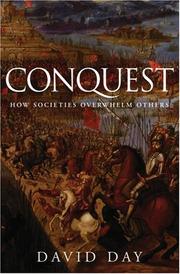| Listing 1 - 8 of 8 |
Sort by
|

ISBN: 0198280076 9780198280071 Year: 1996 Publisher: Oxford : Clarendon Press,
Abstract | Keywords | Export | Availability | Bookmark
 Loading...
Loading...Choose an application
- Reference Manager
- EndNote
- RefWorks (Direct export to RefWorks)
Annexatie (Internationaal recht) --- Annexation (Droit international) --- Annexation (International law) --- Cession of territory --- Conquest [Right of ] --- Debellatio --- Droit de conquête --- Right of conquest --- Verovering [Recht van ] --- Conquest, Right of. --- Annexation (International law).
Book
ISBN: 9783748935544 Year: 2022 Publisher: Baden-Baden : Nomos,
Abstract | Keywords | Export | Availability | Bookmark
 Loading...
Loading...Choose an application
- Reference Manager
- EndNote
- RefWorks (Direct export to RefWorks)
This book argues that Chapter XI of the UN Charter should be applied to military occupations. The book operates in two parts. First, it describes the status quo of the law of military occupation and the economic incentive that this status quo holds for the occupant. Second, it shows by way of a contemporary interpretation, how Chapter XI should be applied and what it would mean for the economic rights of the inhabitants. It will be argued that the application of Chapter XI would make it economically unattractive for an occupant to stay in the foreign territory, while leaving his right to self-defense intact.This book is of interest to scholars and practitioners who are seeking new avenues for the laws of military occupation.
Conquest, Right of. --- Military occupation. --- Belligerent occupation --- De facto doctrine (International law) --- Occupation, Military --- Occupied territory --- Armed Forces in foreign countries --- War (International law) --- Conquest, Right of --- Military government --- Debellatio --- Right of conquest --- International law --- Military occupation

ISBN: 9780199239344 9780195340112 Year: 2008 Publisher: Oxford Oxford university press
Abstract | Keywords | Export | Availability | Bookmark
 Loading...
Loading...Choose an application
- Reference Manager
- EndNote
- RefWorks (Direct export to RefWorks)
Acquisition of territory. --- Conquest, Right of. --- Geopolitics. --- Imperialism. --- World politics. --- Acquisition of territory --- Conquest, Right of --- Geopolitics --- Imperialism --- World politics --- Colonialism --- Global politics --- International politics --- Political history --- Political science --- World history --- Eastern question --- International organization --- International relations --- Empires --- Expansion (United States politics) --- Neocolonialism --- Anti-imperialist movements --- Caesarism --- Chauvinism and jingoism --- Militarism --- Debellatio --- Right of conquest --- International law --- Military occupation --- Territory, Acquisition of --- Territory, National
Book
ISBN: 9688377058 Year: 1988 Publisher: Mexico Universidad nacional autónoma de Mexico. Centro de estudios clásicos
Abstract | Keywords | Export | Availability | Bookmark
 Loading...
Loading...Choose an application
- Reference Manager
- EndNote
- RefWorks (Direct export to RefWorks)
Conquest, Right of --- Indians, Treatment of --- Indians --- 972.02 --- Debellatio --- Right of conquest --- International law --- Military occupation --- 972.02 Geschiedenis van Mexico: ontdekking en Spaans bewind--(1516-1810) --- Geschiedenis van Mexico: ontdekking en Spaans bewind--(1516-1810) --- Legal status, laws, etc --- Neo-Latin literature
Book
ISBN: 9781107433663 9781107076495 9781139924306 1107433665 1316120635 1316121720 1316133710 1316132625 1316130444 1139924303 1316128261 131613153X 1316129357 9781316129357 9781316131534 1107076498 9781316120637 9781316121726 9781316133712 9781316132623 9781316130445 9781316128268 1322293309 Year: 2014 Publisher: Cambridge : Cambridge University Press,
Abstract | Keywords | Export | Availability | Bookmark
 Loading...
Loading...Choose an application
- Reference Manager
- EndNote
- RefWorks (Direct export to RefWorks)
This book analyses the laws that shaped modern European empires from medieval times to the twentieth century. Its geographical scope is global, including the Americas, Europe, Africa, Asia, Australia and the Poles. Andrew Fitzmaurice focuses upon the use of the law of occupation to justify and critique the appropriation of territory. He examines both discussions of occupation by theologians, philosophers and jurists, as well as its application by colonial publicists and settlers themselves. Beginning with the medieval revival of Roman law, this study reveals the evolution of arguments concerning the right to occupy through the School of Salamanca, the foundation of American colonies, seventeenth-century natural law theories, Enlightenment philosophers, eighteenth-century American colonies and the new American republic, writings of nineteenth-century jurists, debates over the carve up of Africa, twentieth-century discussions of the status of Polar territories, and the period of decolonisation.
Boundaries --- Colonization --- Conquest, Right of --- Indigenous peoples --- Sovereignty --- History. --- Legal status, laws, etc --- International law --- History --- Legal status, laws, etc. --- State sovereignty (International relations) --- Political science --- Common heritage of mankind (International law) --- International relations --- Self-determination, National --- Aboriginal peoples --- Aborigines --- Adivasis --- Indigenous populations --- Native peoples --- Native races --- Ethnology --- Debellatio --- Right of conquest --- Military occupation --- Law and legislation --- Imperialism --- Philosophy --- Colonialism --- Empires --- Expansion (United States politics) --- Neocolonialism --- Anti-imperialist movements --- Caesarism --- Chauvinism and jingoism --- Militarism --- International law - History --- Indigenous peoples - Legal status, laws, etc. - History --- Colonization - History --- Sovereignty - History --- Conquest, Right of - History
Book
ISBN: 8400055624 9788400055622 Year: 1984 Volume: 25 Publisher: Madrid Consejo Superior de investigaciones cientificas
Abstract | Keywords | Export | Availability | Bookmark
 Loading...
Loading...Choose an application
- Reference Manager
- EndNote
- RefWorks (Direct export to RefWorks)
Social ethics --- History of Latin America --- anno 1500-1599 --- Indians, Treatment of --- History --- Vitoria, Francisco de, --- Latin America --- 266.3 <8> --- 266 <8> --- Conquest, Right of --- -Indians --- Debellatio --- Right of conquest --- International law --- Military occupation --- Missiografie--Zuid-Amerika --- Missies. Evangelisatie. Zending--Zuid-Amerika --- Government relations --- Vitoria, Francisco de --- Spain --- Asociación Latinoamericana de Libre Comercio countries --- Neotropical region --- Neotropics --- New World tropics --- Spanish America --- -Colonies --- -Administration. --- Conquest, Right of. --- History. --- Colonies --- Administration. --- -Missiografie--Zuid-Amerika --- 266.3 <8> Missiografie--Zuid-Amerika --- -Debellatio --- Espanja --- Spanien --- Hiszpania --- Spanish State --- España --- Estado Español --- Espagne --- Hispania --- Sefarad --- Sepharad --- Shpanye --- Shpanie --- Reino de España --- Kingdom of Spain --- Reino d'Espanya --- Reinu d'España --- Espainiako Erresuma --- Regne d'Espanya --- Reiaume d'Espanha --- Espanya --- Espanha --- スペイン --- Supein --- イスパニア --- Isupania --- Francisco de Vitoria, --- Victoria, Francisco de, --- Francisco, --- Franziscus, --- Franzisco, --- Franciscus, --- De Vitoria, Francisco, --- Vittoria, Francisco de, --- Amérique. Colonisation. --- Amerika. Colonisatie. --- Indians, Treatment of - Latin America - History --- Vitoria, Francisco de, - 1486?-1546 --- Latin America - History - To 1600
Book
ISBN: 906416360X Year: 1999 Publisher: Heeswijk Dabar-Luyten
Abstract | Keywords | Export | Availability | Bookmark
 Loading...
Loading...Choose an application
- Reference Manager
- EndNote
- RefWorks (Direct export to RefWorks)
266.1*35 --- 2 FRANCISCO DE VITORIA --- 241.65*1 --- Conquest, Right of --- Humanitarianism --- Indians, Treatment of --- -#gsdb13 --- Europa --- S2006558.JPG --- derdewereldlanden --- geschiedenis --- globalisering --- multiculturele samenleving --- Indians --- Human welfare --- Philanthropy --- Social welfare --- Charities --- Ethics --- Debellatio --- Right of conquest --- International law --- Military occupation --- Salus infidelium --- Godsdienst. Theologie--FRANCISCO DE VITORIA --- Theologische ethiek: communicatieve en distributieve rechtvaardigheid --- History --- 401 --- 402 --- 94 --- 327 --- 325 --- Government relations --- Vitoria, Francisco de --- Conquest, Right of. --- Humanitarianism. --- Ethics. Moral Philosophy. --- History. --- 241.65*1 Theologische ethiek: communicatieve en distributieve rechtvaardigheid --- 2 FRANCISCO DE VITORIA Godsdienst. Theologie--FRANCISCO DE VITORIA --- 266.1*35 Salus infidelium --- #gsdb13 --- Vitoria, Francisco de, --- Francisco de Vitoria, --- Victoria, Francisco de, --- Francisco, --- Franziscus, --- Franzisco, --- Franciscus, --- De Vitoria, Francisco, --- Vittoria, Francisco de, --- C5 --- Maatschappelijke organisaties en maatschappelijk leven
Book
ISBN: 9780691234953 0691234957 Year: 2022 Publisher: Princeton, New Jersey : Princeton University Press,
Abstract | Keywords | Export | Availability | Bookmark
 Loading...
Loading...Choose an application
- Reference Manager
- EndNote
- RefWorks (Direct export to RefWorks)
"Robespierre is arguably the most controversial and contradictory figure of the French Revolution. He still inspires more passionate debate than any other protagonist of those dramatic and violent events of the late eighteenth century, and he still retains both unconditional admirers as well as fierce critics. The fervor of those who defend the "incorruptible" is met with revulsion of by those invoke the bloodthirsty "tyrant". Robespierre, in fact, is the embodiment of the two competing memories of the Revolution, much as 1789 and 1793 still symbolize the two opposing faces of this foundational event: the glorious accession of liberty, on the one hand, and the excesses which terminated in the Terror, on the other. Only Robespierre is the link between the two. He championed the rights of the people in the Assembly and then through his Montagnard Convention provided the guillotine. In this extended essay, eminent French historian Marcel Gauchet reflects upon the insight that the contradictions of Robespierre were simply the contradictions of the French Revolution itself, in no small part because Robespierre was in his way the purest incarnation of the Revolution. He was neither the defender of the rights of man only later corrupted by power, nor the tyrant who betrayed the principles of the Revolution. He was both: the figure most associated with the founding of modern French democracy was also the first tyrant of that democracy. Gauchet argues that in Robespierre the transition from opposition to government was the embodiment of the tragedy inherent in the Revolution, as its own prophetic ideals were impossible to implement. To understand Robespierre, then, is really to understand the tragedy of modern democracy, for which the descent into tyranny is a perpetual danger"--
Revolutionaries --- Robespierre, Maximilien, --- de Robespierre, Maximilien --- Robespierre, Maximilien --- Public opinion. --- France --- Politics and government --- de Robespierre, Maximilien François Marie Isidore --- 10 August (French Revolution). --- Advocacy. --- Atheism. --- Attempt. --- Black Legend. --- Caen. --- Calculation. --- Camille Desmoulins. --- Capital punishment. --- Christianity. --- Committee of General Security. --- Committee of Public Safety. --- Confidence. --- Cordeliers. --- Counter-revolutionary. --- Criticism. --- Decree. --- Deliberation. --- Democracy. --- Despotism. --- Dictatorship. --- Economic Life. --- Embodiment of Evil. --- Explanation. --- Fanaticism. --- Georges Danton. --- Girondins. --- Government. --- Hatred. --- Hostility. --- Imminent peril. --- Impunity. --- Incorruptibility. --- Incumbent. --- Indictment. --- Individualism. --- Innuendo. --- Institution. --- Interdependence. --- Jacobin (politics). --- Jacobin. --- John Mearsheimer. --- Journalist (Russian magazine). --- Jurisprudence. --- Legislator. --- Legislature. --- Louis Antoine de Saint-Just. --- Maximilien Robespierre. --- Newspaper. --- Obedience (human behavior). --- Obligation. --- Patriotism. --- Petitioner. --- Political organization. --- Political spectrum. --- Politics. --- Pontiff. --- Prejudice. --- Provisional government. --- Public morality. --- Reactionary. --- Regulation. --- Reims. --- Religion. --- Render unto Caesar. --- Representative assembly. --- Resentment. --- Rhetoric. --- Right of conquest. --- Rights. --- Rule of law. --- Sans-culottes. --- September Massacres. --- Social law. --- Sovereign People. --- Sovereignty. --- Suggestion. --- The Mountain. --- The Public Interest. --- Uncertainty. --- Unrest. --- Veto. --- Women's March on Versailles.
| Listing 1 - 8 of 8 |
Sort by
|

 Search
Search Feedback
Feedback About
About Help
Help News
News